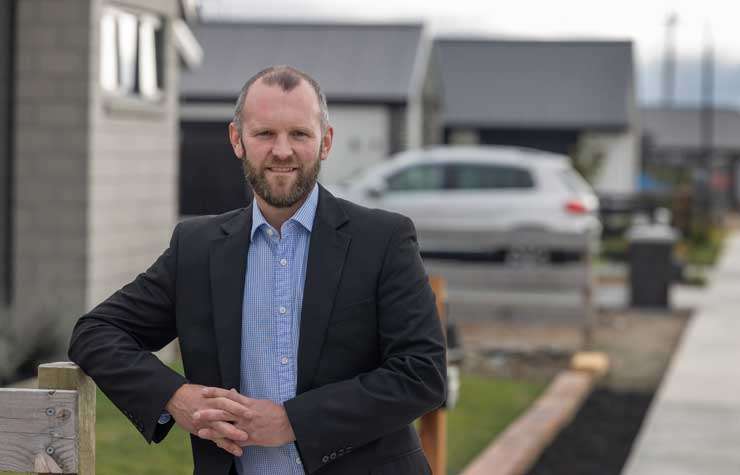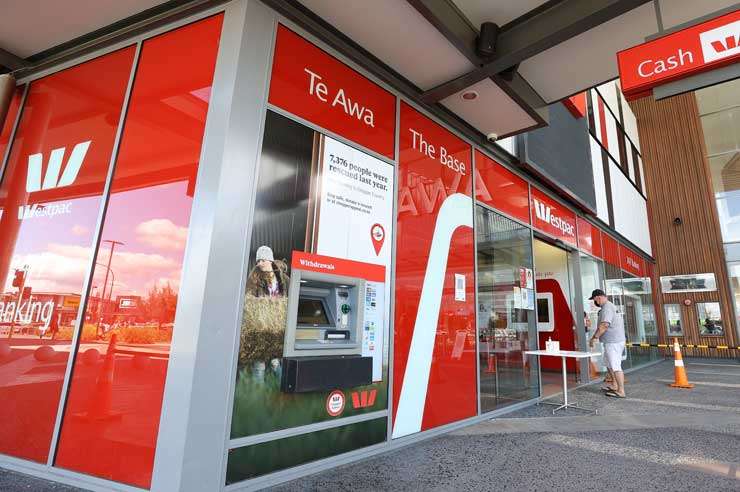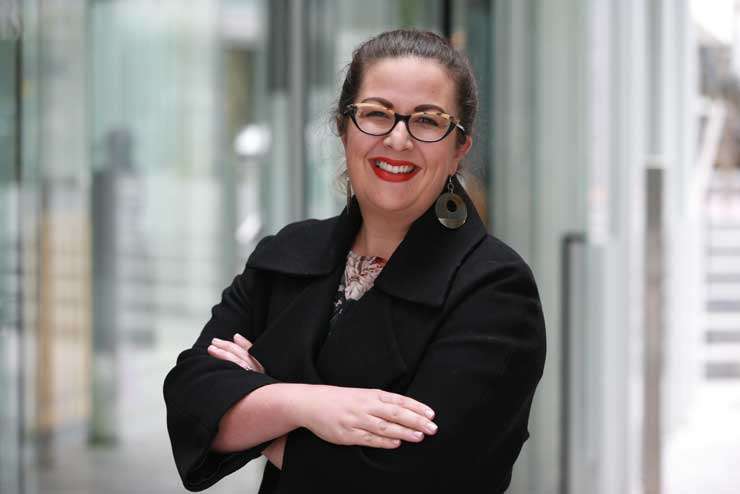People who took on huge debt to buy a house at the peak of the market late last year might be looking back and wondering if they bought at the worst possible time.
Since then, everything has gone up: interest rates are up, petrol is up and the supermarket shop is up.
Housing affordability has never been worse - and no one expected Russia to invade Ukraine which is putting further pressure on commodity prices.
The housing market has turned with prices softening so those who bought last year are suddenly faced with the potential situation of owing more than the value of their house.
Start your property search
That's a lot to contend with and first homeowners especially could be forgiven for feeling jittery.
However, the main message from a range of industry experts spoken to by OneRoof is this: be glad you at least now own a house, hunker down, ride out the hard times and don't panic.
Kelvin Davidson, CoreLogic's chief property economist, says there are pros and cons if you bought late last year.
"You might be paying more than what you would have paid a year ago - but you might be paying less than you would in a year's time,” he says.
“If you bought, at least you've got a house. OK, interest rates are higher than what you would have got a year ago but they could go higher yet so you might still have locked in at a lower rate than if you'd bought at the end of this year."
Buying a house is more than just financial, Davidson says. "If you're a first-time buyer you like your house, you want to get stability, you like the location, and you're going to live there for 10 years - does it really matter?”
He is not making light of the tough times people are facing, saying an affordability measure CoreLogic uses, which looks at how much income people need to pay the mortgage on average, is sitting at 48 per cent – that's as high as it has been since the first quarter of 2008 during the Global Financial Crisis.

CoreLogic's chief property economist Kelvin Davidson: “If you bought at least you've got a house.” Photo / Fiona Goodall
The figure could go higher still, Davidson warns, but he still thinks people who have already bought should be able to ride out the downturn.
That's partly because when banks approve loans they test serviceability at a higher interest rate which creates a buffer, and in New Zealand most people put in a 20 per cent deposit so they already have some equity.
As long as people keep their jobs and don't have to sell, there's not really an issue, he says.
However, Davidson also says the historic low interest rates seen in the last couple of years have been a post-Covid feature of people borrowing ever bigger amounts and really stretching themselves.
Reserve Bank figures show the average first home buyer loan in January was $578,000 across the country, compared to $518,000 in January last year, and $448,000 in January 2020.
While home loans have tracked up, harder still has been getting the deposit together.
CoreLogic figures show it would take 11.7 years for a first-time buyer to save a 20 per cent deposit – that compares to 9.4 years during the last housing boom peak in 2016, and 8.1 years for the peak prior to that in 2007.

Banks have been steadily raising interest rates since last year. Photo / Fiona Goodall
Michael Gordon, acting chief economist for Westpac, says whether buying at the peak of the housing market was a bad time to buy depends on people's motives.
"If you were buying a home for your family then timing the market is not necessarily the main goal anyway. In hindsight, you may regret paying what you did,” he says.
Whether the purchase causes financial distress, however, is another matter with factors like the higher testing rates for borrowers limiting that.
"Of course, meeting the repayments themselves is the primary focus there, it's not about making sure it's a buffer for fun stuff - that's up to individual borrowers to manage themselves.”
While no one likes negative equity, Gordon points out it doesn't trigger a default on the mortgage.
"That's not the way mortgages are structured here. It's about whether you're continuing to meet the payments on it. It's not like the caricature of the US market in 2008 where people were mailing the keys of the house back to the bank and just walking away from it."
Negative equity might, however, mean some people have a limited ability to get a top up loan, such as for a renovation, so plans might have to go on hold.
Westpac is forecasting a 10 per cent drop in house prices from peak to trough, which is a sizeable drop, Gordon says.
But even a even a 10 per cent drop from the peak would still only get prices back to where they were early last year, which shows the extent of the paper gains the majority of homeowners have experienced.
Hannah McQueen, founder of financial advice company enableMe, says it might seem to a recent first home buyer they have stuffed up their timing, but she doesn't agree.
“For a start, I’m an advocate of time-in-the-market over timing-the-market – so the fact that the market is slowing should only be a concern if you were planning to, or needed to, sell up right now.

EnableMe founder Hannah McQueen says buyers shouldn’t focus on timing. Photo / Doug Sherring
"Consider those who bought a house prior to the global financial crisis – they may have wondered if they’d bought at the ‘wrong’ time but if they held on through that, today I’d expect they’d be very happy with their capital gains."
Plus, lending tends to be more restrictive during financial downturns and anyone trying to get a loan now knows how tough the CCCFA rules are making it, she says: "You might feel lucky you got a mortgage when you did."
James Wilson, director of Valuation at OneRoof's data partner, Valocity, says any property purchase should be thought about over the long-term, negating the need for short-term panic.
"As long as you can still afford to pay the mortgage and the other costs associated with keeping the property then it doesn't really matter what goes on around you - even if values do come backwards a wee bit over time, in the long run you should be okay.”
Negative equity can be a scary concept, but Wilson also says as long as people don't have to sell they shouldn't panic.
Having said that, people who bought in the last six months are more exposed to a negative equity scenario, unlike others who bought five years ago who have experienced 50 or 60 per cent value growth.
Not having that buffer is more psychological than anything if they are still affording the repayments, though.

Valocity head of valuation James Wilson urges buyers not to panic. Photo / Fiona Goodall
"It just means they are more likely to tighten the belt sooner and not buy the new car or put in the new kitchen."
Wilson's other message is it's better to be in the market, even if you did buy at the peak late last year.
"There are many people who sat around and waited for the market to crash and I think if you asked them 'should I have waited?' they nearly always go 'if I bought it when I wanted to, I would have made this much equity by now.'"
Independent economist Tony Alexander agrees most people have a long-term focus on the purchase so the timing of when they bought doesn't much matter – and very few people ever say they wish they hadn't bought.
"I don't think any fault can be laid at the people who bought in the peak in December because none of us could see that was going to be the peak – if I was a young first home buyer and I found the place I liked, I'd have been buying last year."
Banks have assessed people's ability to handle higher interest rates and also the sustainability of their jobs, and the labour market is still strong.
"We're still looking at a reasonable growth in our economy going forward."



















































































